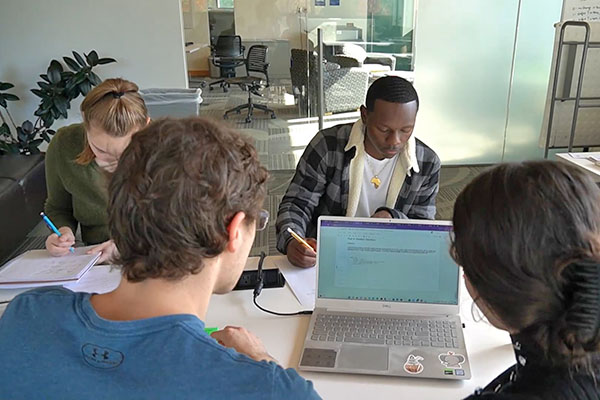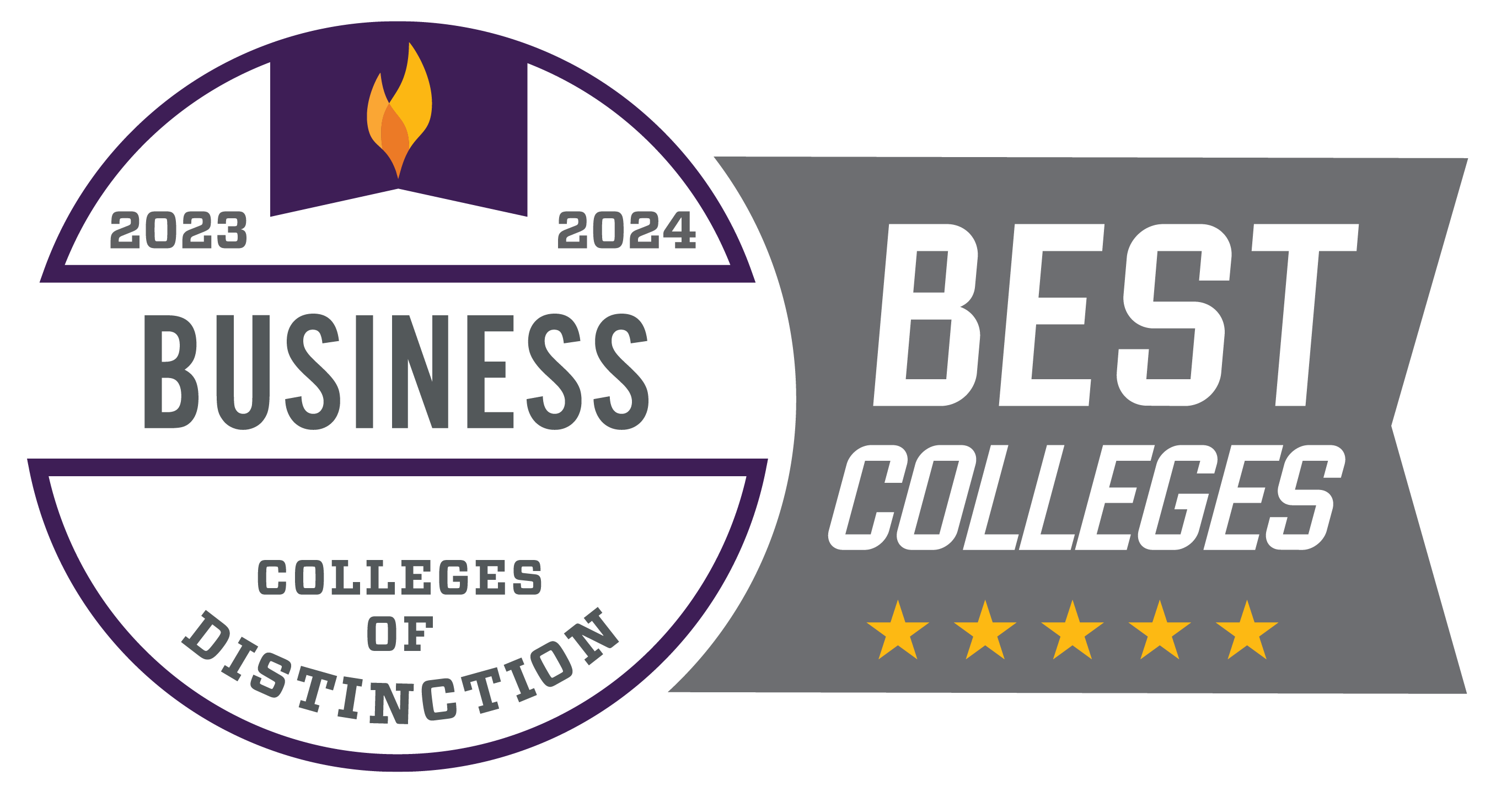Business, Artificial Intelligence, & Innovation
Bachelor of Science
Become a business/nonprofit tech project leader or innovator.
The growth of artificial intelligence will disrupt many parts of society. Nazareth University prepares you to lead in a business or organization by identifying machine learning opportunities, resolving ethical issues, developing successful business cases, implementing artificial intelligence projects, and preparing an organization for change. Organizations need people who can translate strategic objectives into successful AI solutions that achieve goals — and who can guide the organization to optimize the data they already have.

Highlights
Get a solid foundation in the technological underpinnings of artificial intelligence
Work collaboratively to develop successful AI-infused business plans and projects
Join a rapidly growing community of civic-minded technologists
Focus on the ethical evaluation of artificial intelligence opportunities



Career Paths
- AI scrum/project leader
- Artificial intelligence product owner
- Sales development leader
- Internal/external business development leader
- Chatbot copywriter
Example internships
Your Center for Life’s Work career coach will work with you to arrange an artificial intelligence internship with a company, nonprofit, or government office that’s using artificial intelligence, where you will apply the skills you’ve learned in the program and gain more skills and insights.
Nazareth has connections and partnerships with a range of organizations that are investing in artificial intelligence, including:

99%
of new Nazareth grads are employed or in grad school within six months of graduation
$1,500
Our SPARK Grant provides $1,500 for you to pursue an internship, research, or study abroad. SPARK details »
IRT
Part of Nazareth's Institute for Responsible Technology (IRT) — committed to promoting a just, equitable technological future.
Program Details
- Build your artificial intelligence foundation around machine learning, programming software, data science, and AI applications.
- Gain skills that enable you to see creative opportunities to apply artificial intelligence in a business, institution, or organization.
- Integrate business skills with artificial intelligence skills to make the best choices, develop business cases, and lead successful project teams to implement AI applications.
- Balance artificial intelligence opportunities with ethical decisions to drive growth without damaging any community.
- Courses include Organizational Inquiry and Creativity; AI Strategy and Process Improvement; Artificial Intelligence Project Leadership; and Business, Artificial Intelligence, & Innovation Internship
Contact

Alumni Spotlight
Matt Sayles '25
“AI is a budding field. This program is a way to truly separate yourself — understanding technology, with business savvy and knowing how to organize effective teams. It makes you a very well-rounded business student who has a knowledge of AI. Nazareth’s smaller environment means you can challenge yourself with people in your corner, including professors, your advisor, and a community, to support you.”
Matt majored in business, artificial intelligence, and innovation, with a minor in sports and entertainment management. He went on to play professional hockey in South Carolina and then plans to work in business operations for a National Hockey League organization or as a goaltending coach.